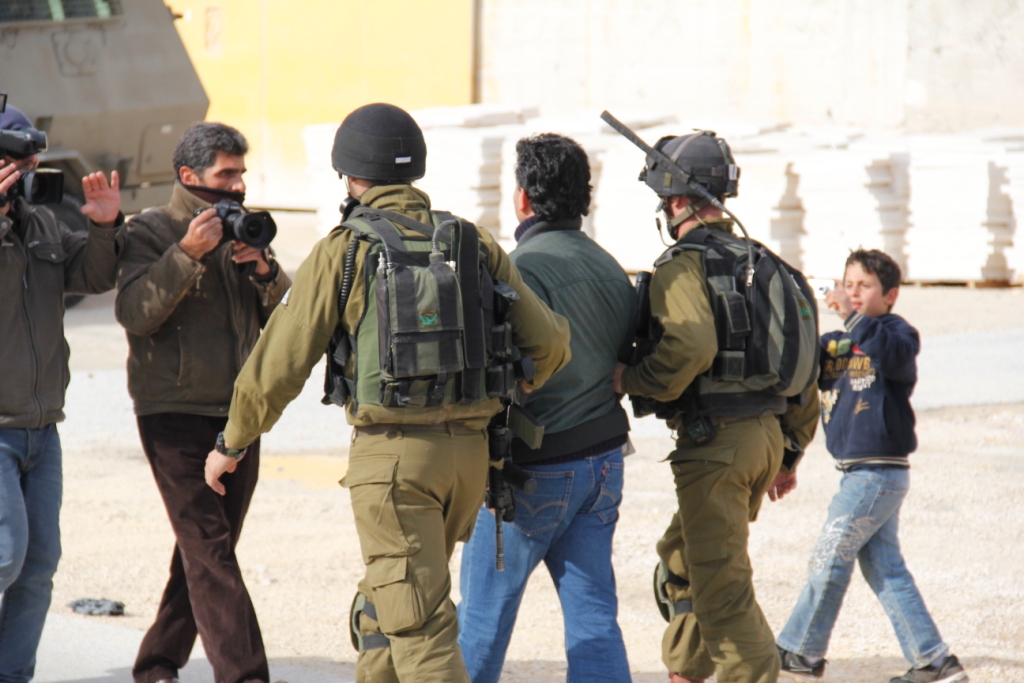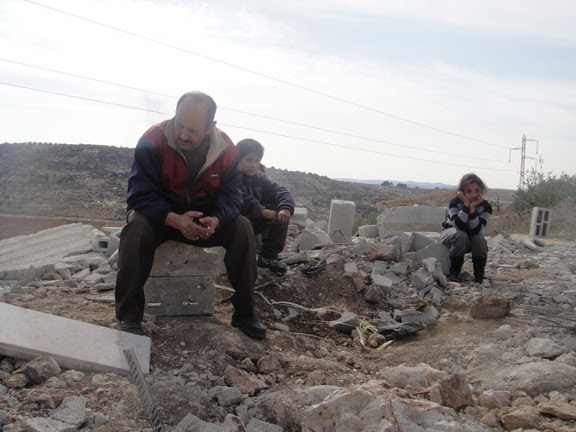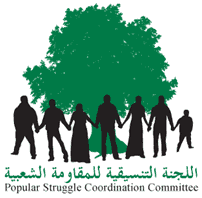-
Al Ma’asara refuses the road to illegal settlement activity
10 December 2011 | International Solidarity Movement, West Bank This weeks’ demonstration in the village of Al-Maasara was attended by approximately forty peaceful protesters with twenty Palestinians and twenty internationals. As always during the protests in Al Ma’asara the protesters were confronted by a line of Israeli soldiers who refused to allow the Palestinians cross an […]
-
Idna family charged by Israeli military for “demolition services”
10 December 2011 | International Solidarity Movement, West Bank Over two weeks have passed since the El Gelwe family’s home was demolished. They remain homeless and are currently living in a tent which was provided by Palestinian neighbors in the village of Idna, of the Hebron Governorate. The family’s tent is erected just meters away from […]
-
Critically injured Mustafa Tamimi of Nabi Saleh dies of his wounds
9 December 2011 | Popular Struggle Coordination Committee Mustafa Tamimi, who was fatally injured yesterday during a demonstration in the West Bank village of Nabi Saleh passed away earlier today. Tamimi was hit in the face by a tear–gas projectile shot directly at him, from only a few feet away. Mustafa Tamimi, a 28 year […]
Action Alert An Nabi Saleh Apartheid Wall Arrests BDS Bethlehem Bil'in Cast Lead Demonstration Denial of Entry Ethnic Cleansing Farmers Gaza Global Actions Hebron House Demolition International law Israeli Army Jerusalem Live Ammunition Nablus Ni'lin Prisoner Ramallah Rubber-coated steel bullets Settlement Settlers Settler violence Tear-Gas Canister Video



